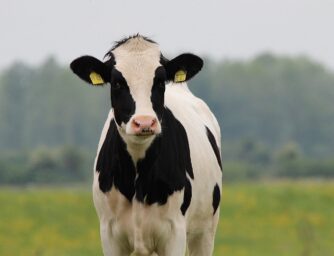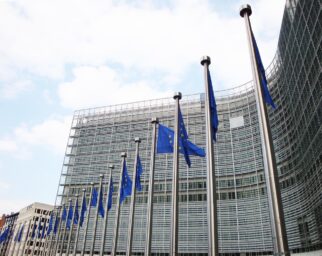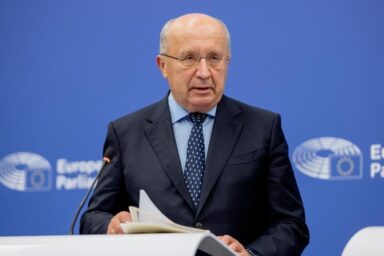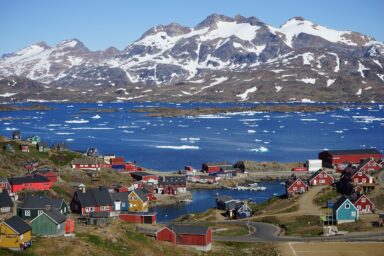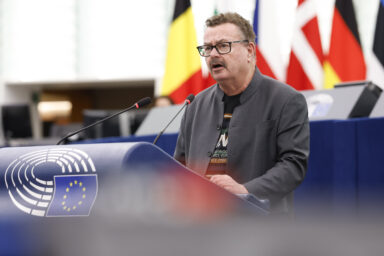Good-bye plastic packaging, hello algae-based alternatives. Farm waste turns into chemicals, your clothes come from plant fibres instead of oil. Dream or nightmare, Brussels tells you to expect cheaper green products and thousands of rural jobs by 2030.
The European Commission unveiled a sweeping new bioeconomy strategy, aiming to transform Europe’s industrial landscape by harnessing renewable biological resources. The Strategic Framework for a Competitive and Sustainable EU Bioeconomy, published on 27 November, sets out a vision for 2040. It details how the EU will scale up bio-based sectors and reduce dependence on fossil fuels, and imported raw materials.
The bioeconomy already contributes €2.7tn to the EU economy and employs 17.1 million people. That represents about eight per cent of the bloc’s workforce. Every job in the sector creates three indirect jobs, underscoring its economic importance.
The strategy targets a wide range of industries, from agriculture and forestry to fisheries, aquaculture, biomanufacturing and biotechnologies. It seeks to replace fossil-based materials with bio-based alternatives, such as plastics, chemicals, textiles, construction materials and fertilisers.
You might be interested
Biorefineries et al.
Teresa Ribera, Commission clean-transition VP, stressed the urgency of this shift. “The bioeconomy holds the answer to combining prosperity with environmental protection. It restores ecosystems while leading on biotechnologies,” she said. The Commission will work to create a regulatory environment that rewards circular and sustainable business models, while safeguarding safety standards. Faster, clearer and simpler approvals for innovative solutions will help companies—especially SMEs—develop and grow in Europe.
To stimulate investment, the Commission proposes to convene a Bioeconomy Investment Deployment Group. It aims to bring together public and private stakeholders to create a pipeline of bankable projects and share risk more effectively.
The group will mobilise public and private capital, particularly for first-of-a-kind biorefineries, advanced fermentation facilities and bio-based materials manufacturing. The Commission will also ensure that existing and future EU funding goes into bio-based technologies, bridging the gap between research, innovation and market upscaling.
An industrial frontier
The strategy identifies innovative markets for bio-based materials and technologies, including bioplastics, construction materials, textiles, biochemicals and biopesticides. The Commission will boost demand for bio-based content in products by setting targets in relevant legislation and providing regulatory incentives.
It will also facilitate public procurement of bio-based materials and promote standardisation. To support lead markets, the Commission will launch a flagship voluntary initiative called the Bio-based Europe Alliance (BEA), where leading EU companies commit to jointly purchase €10bn in bio-based materials by 2030.
The future is not fossil. The future is living, circular, and regenerative. The future is bioeconomy. — Teresa Ribera, European Commission Executive Vice-President for Clean, Just and Competitive Transition
The Commission stresses the need for a sustainable supply of biomass, ensuring that forests, soils, water and ecosystems are managed within their ecological limits. Promoting circularity and enhancing the value of secondary biomass—such as agricultural residues, by-products and organic waste—is key. The Commission will set up initiatives rewarding farmers and foresters who protect soils, enhance carbon sinks and support sustainable biomass use.
Leadership and vision
Environment Commissioner Jessika Roswall framed this approach as essential: “The bioeconomy offers huge potential to scale up—from the products we use every day, to the homes we live in, to large industrial applications. This is a growth strategy that will increase our resilience and competitiveness, and at the same time ensure that nature and healthy ecosystems remain the backbone of our economy.”
The strategy also addresses the blue bioeconomy, making better use of unused aquatic resources such as waste from fisheries and aquaculture, cultivated algae and non-native species. The Commission will launch a dedicated Blue Bioeconomy Innovation initiative, supporting the growth of the European algae industry.
International collaboration and policy alignment are crucial to overcoming regional disparities and ensuring that the benefits of a circular bioeconomy are equitably distributed. The EU’s efforts are moving from research and innovation to mainstreaming, enhancing sustainability and circularity in the international context.
A new economic era
Ms Ribera returned to the heart of the Commission’s ambition, stating bluntly: “It is our responsibility to citizens to build a competitive and thriving economy. The future is not fossil, it is living, circular, and regenerative. The future is bioeconomy.” This vision reflects a fundamental reorientation of European industrial policy away from extractive models towards regenerative ones.
It will create local jobs, replace fossil resources, and protect the nature we all rely on. — Jessika Roswall, Commissioner for Environment, Water Resilience and a Competitive Circular Economy
Ms Roswall reinforced this commitment by emphasising the human dimension: “It will create local jobs, replace fossil resources, and protect the nature we all rely on. Our vision is clear: a future where Europe runs on nature, innovation and circular solutions rooted in a competitive and sustainable bioeconomy.” These remarks underscored that the bioeconomy is not merely an economic strategy but a philosophical shift in how Europe understands prosperity.
The Commission’s new bioeconomy strategy is supposed to be a “blueprint for a more resilient, competitive and sustainable Europe“. The plan recognises that the bioeconomy is already a major economic force, but it also sees untapped potential. By scaling up innovation and investment, the EU hopes to create new jobs, reduce its reliance on fossil fuels and imported raw materials, and strengthen its position in global markets.

